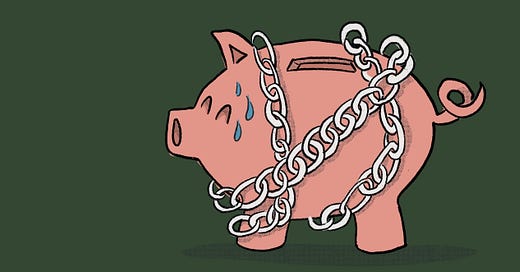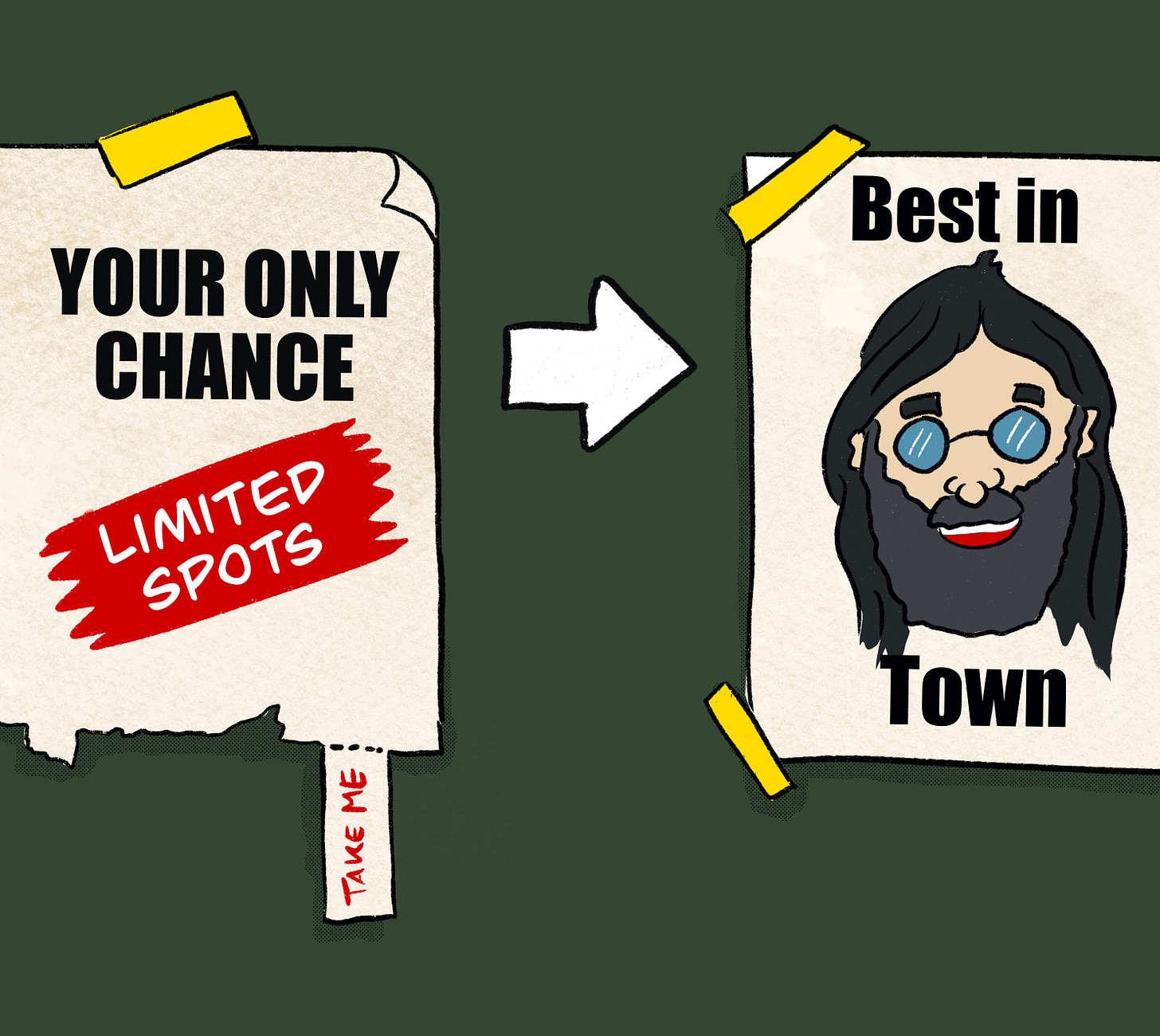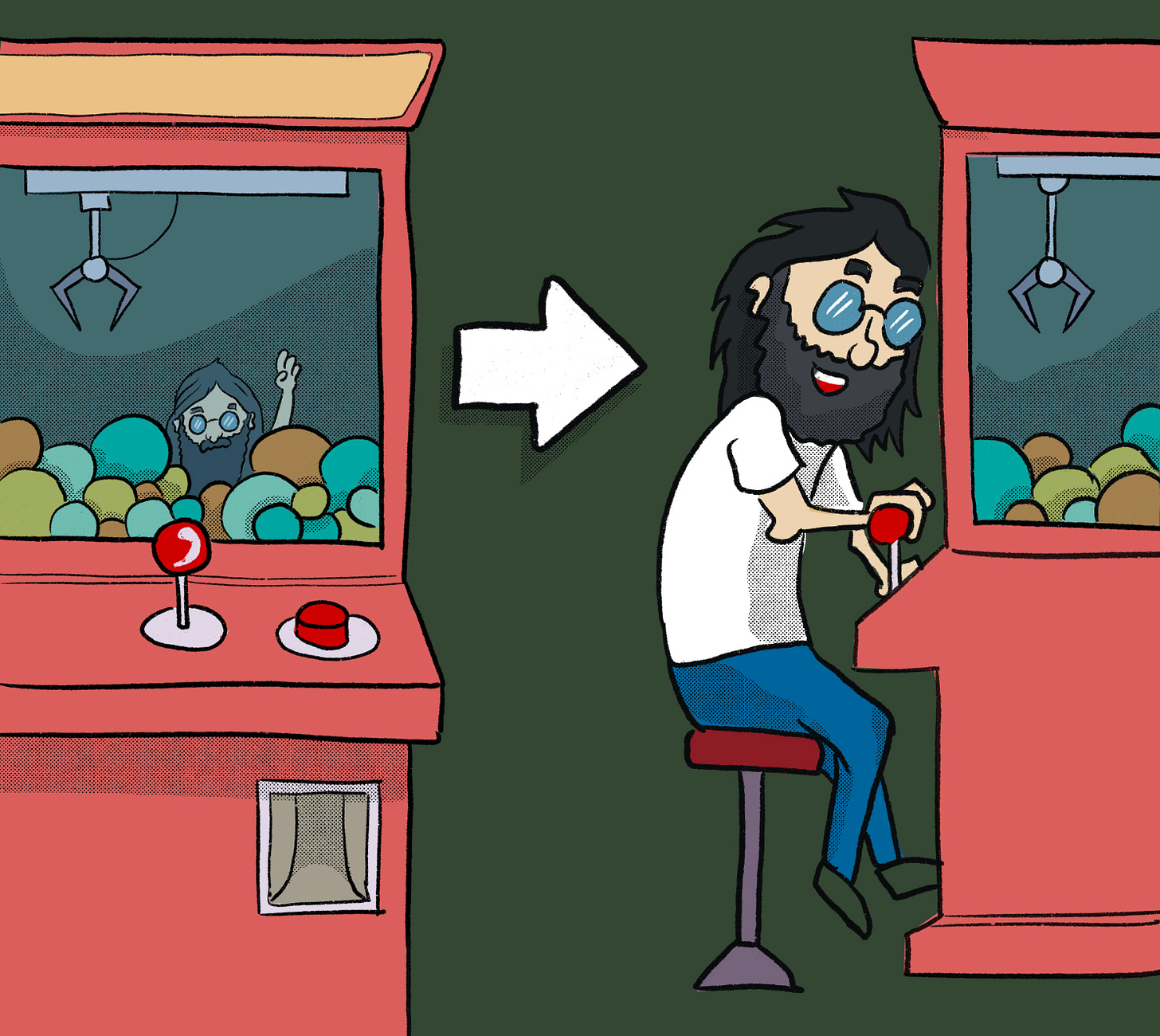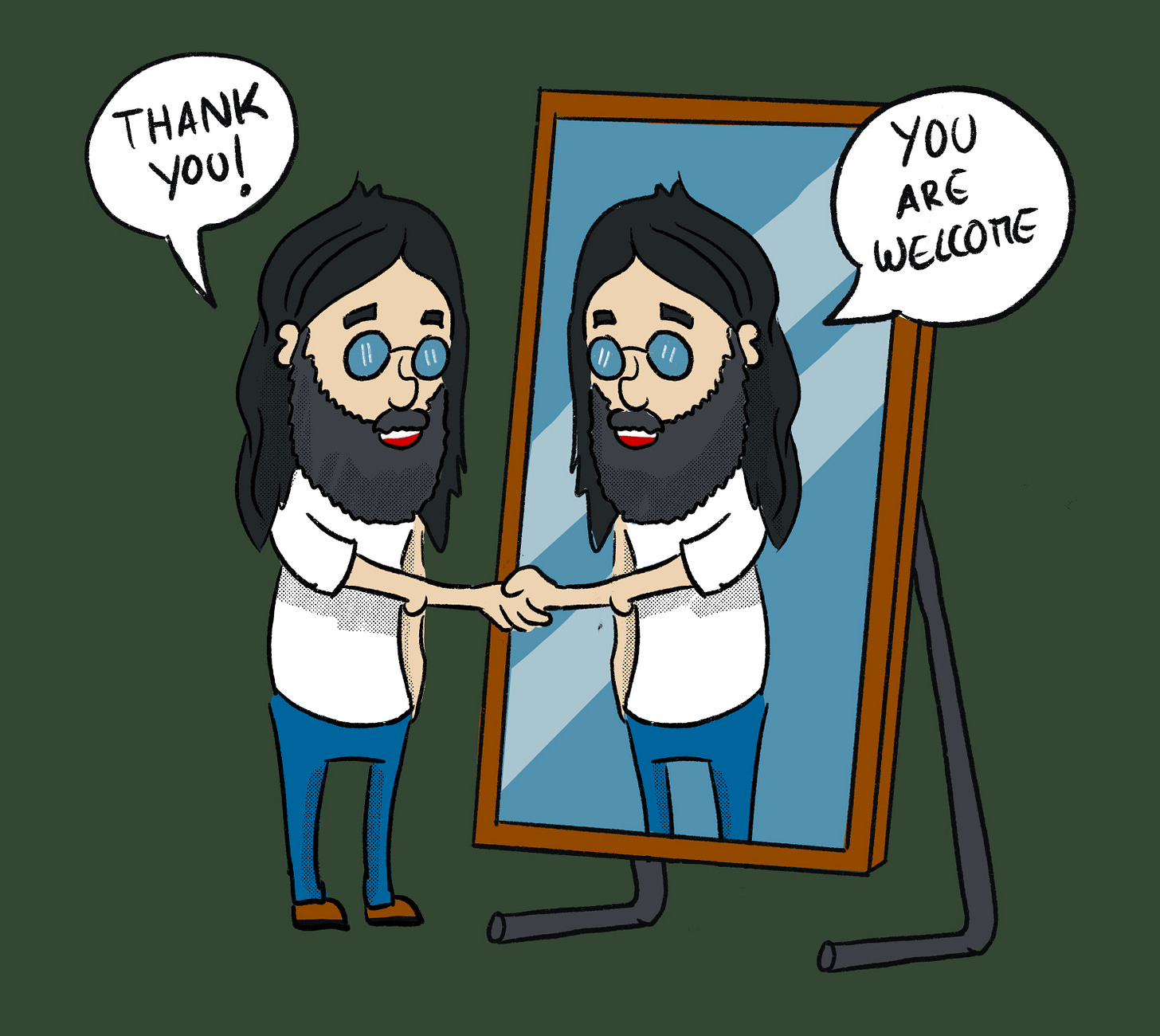Sometimes we want to ask ourselves questions we don't have a reply to, but we can't afford to ask them. Other times we can ask them, but we fear the answers. Therefore, we don't dare to ask the questions.
That's what a scarcity mindset can do to us. It's especially stronger when it comes to work and making an income. Many of us grew up within a scarcity model: low-income background, bad economic environment, lack of jobs, or bad timing. What they all have in common is they act as reactive triggers that put us in survival mode - we can't choose; we need to react and be grateful for what we have.
We need to do what we must, and life isn't fair. We go with this for a while. We fight for a better life. After such a long fight and survival, without noticing, this becomes our operational model for most decisions. We don't realize that it gets in the way of how we look at opportunities, relate to risks, and taints our decision-making with fear of uncertainty and scarcity.
The problem is that we reach stability and certainty in our journey, allowing us to comfortably take risks and aim for something more meaningful. But many of us, when faced with the opportunity to ask questions about what we really want and what that means, we back off into our reactiveness. Our fear of scarcity kicks in, hindering us to ask questions and find answers for a more meaningful life.
We can choose between reactiveness (giving in to the scarcity mindset) and taking control (facing and overcoming our fears).
1. From no options to make it our own
Transitioning from having limited options to making our paths is a profound shift. We become used to a lack of choices, finding comfort in the simplicity of decision-making. The absence of options often leads us to believe that there is little we can do, freeing us from the burden of responsibility. However, a remarkable transformation occurs when we take charge of our options. Embracing this agency requires a mindset shift as fear and uncertainty loom. It entails shifting our focus from the available options to actively seeking and creating new possibilities, reaching beyond what is readily presented.
2. From reactive to proactive
Coming from a background of scarcity, our instinctive reaction is to become highly responsive creatures. We develop a keen sensitivity to uncertainty, constantly seeking solutions to avoid potential loss. This reactive nature works for us in survival situations, but as we achieve financial, emotional, and social security, it hinders our ability to truly flourish.
When we finally have a moment to contemplate the direction of our lives and desires, we find ourselves at a loss. We've grown accustomed to reacting rather than being proactive and intentional about our next steps. However, it's important to recognize that being proactive is the key to constructing our desired reality. It empowers us to take control, establishing a new sense of security and meaning. So let's embrace the challenge and build the life we want—one deliberate step at a time.
3. From grateful to grateful
Gratitude is undoubtedly important for a happy life, but there are different shades of gratitude. In certain periods, having a job and stable income can feel like a blessing, especially during times of economic crisis and job scarcity. However, there are also moments when we can afford to question our desires and explore ways to make them a reality. Yet, the scarcity mindset often creeps in, whispering, "Be grateful for what you have; it's not so bad." It warns against risking the loss of comforts in pursuit of happiness.
Do you see the dilemma? Gratitude can sometimes become a trap, an excuse to avoid taking action and responsibility. Instead, we can shift our gratitude towards ourselves, acknowledging the hard work that has brought us to a point where we can ask those profound questions, strive for a better life, and dare to take risks we once believed were impossible.
Imagine if you knew that you could achieve anything you desired. Where would you begin?








